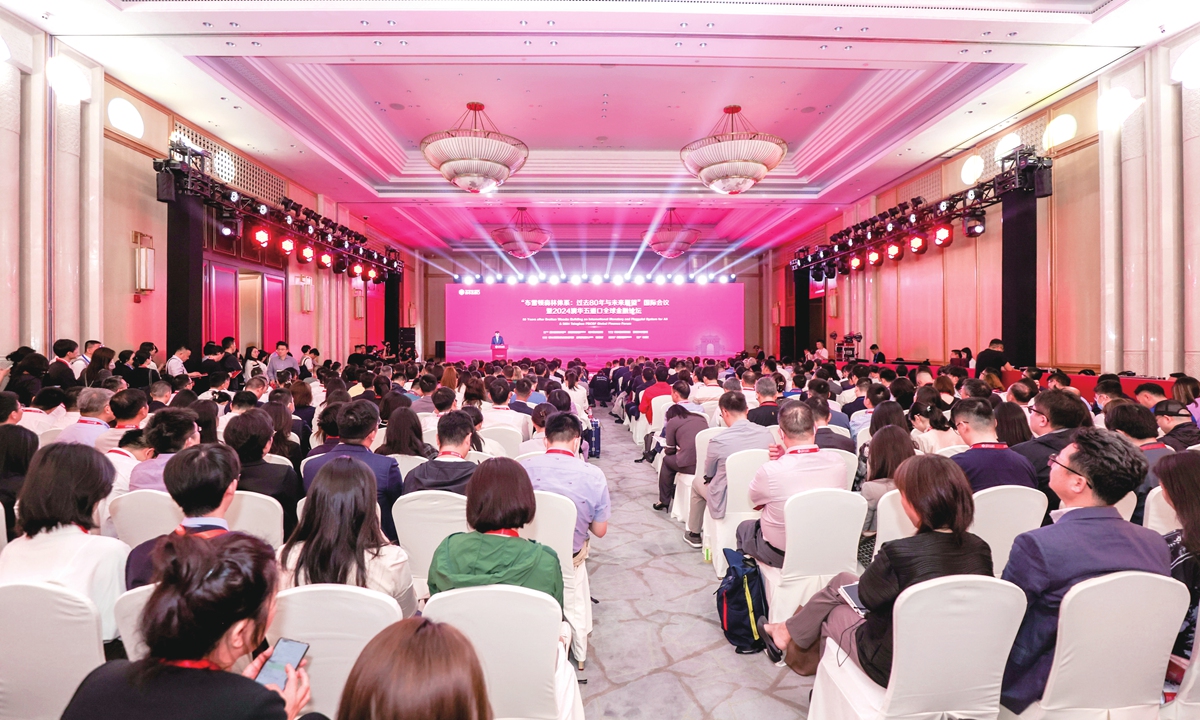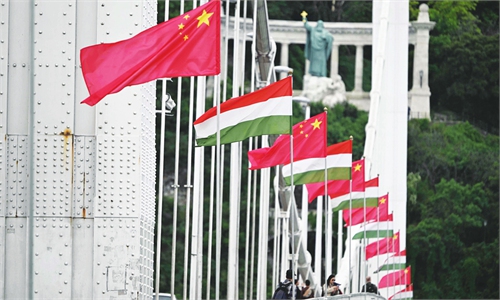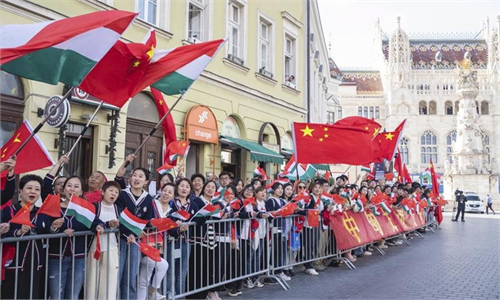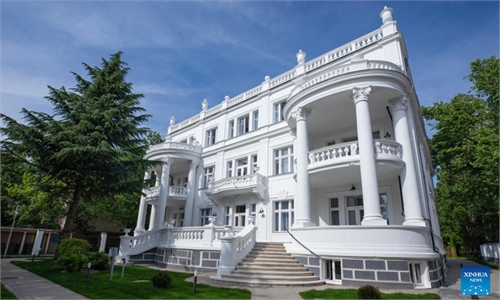
Editor's Note:
The 2024 Tsinghua PBCSF Global Finance Forum kicked off on Monday in Hangzhou, capital of East China's Zhejiang Province. Themed with "80 Years after Bretton Woods: Building an International Monetary and Financial System for all," the forum gathers more than 70 Chinese and foreign officials and scholars to discuss a variety of related topics. The Global Times (GT) interviewed György Matolcsy (Matolcsy), governor of the Central Bank of Hungary on the sidelines of the forum on Monday, Matolcsy shared his insights on the build-up of a new financial system, international currency diversification push and the cooperation between China and Hungary.

The 2024 Tsinghua PBCSF Global Financial Forum kicks off at Hangzhou, East China's Zhejiang Province on May 27, 2024. Photo: Courtesy of event organizer
GT: The theme of this forum is about the Bretton Woods System. From your perspective, against the backdrop of a global de-dollarization trend, is there an urgent need to build a new financial system?
Matolcsy: The initial Bretton Woods System proved to be successful. It helped all destroyed economies to recover after the Second World War, and it had to stabilize the world. However, the Americans then changed the Bretton Woods System in favor of the American economy.
At present, we cannot sustain a global financial system only based or based only on the one national currency, it's clear-cut that it is unsustainable. So the debate and the planning procedure for the new financial order is - on one hand - to protect the functions of Bretton Woods System agreement to stabilize the world economy. On the other hand, we need multiple choices and multiple solutions. For example, the special drawing rights (SDRs) of the IMF is a sort of currencies which not only includes the US dollar but also other major currencies. There are some other options, which is the central banks digital currency (CBDC), a brand-new financial tool for the central banks and for the world to balance the role of the US dollar. We can also create the Asian basket for CBDC, like China, Japan, South Korea, India, Indonesia, and any other Asian countries can make the decision to join.
GT: How would the new system differ from the Bretton Woods System, in terms of the voices from emerging markets? And what role can China and Hungary play in the construction of the new monetary system?
Matolcsy: The voices of the emerging economies should be sensed. There will be much more influence for the emerging countries and emerging markets, because there is a very strong shift from the Western world to the Eastern world when it comes to trade, technologies and intellectual forces. And the so-called emerging world will have a greater position and say, in all decisions of the new financial order.
The new financial world is badly needed in order to keep stronger voices for the rising part of the world economy. And that's the reason why we need the new tools. When we've got the US dollar as the only one, they can easily rule out all the other voices and other currencies. But via CBDCs, or what I said a new Asian SDR, we can offer the whole world with a new border financial transaction system.
China is a great financial power. In the construction of the new global financial order, we need gate countries, capitals in order to smooth all the transactions. And Hungary could serve as a gate country between China and the European Union.
GT: How do you envision the relationship between China and Hungary?
Matolcsy: I can easily say it's an outstanding, long-lasting, well-rooted relationship. It is a really strong one. We have the Chinese top leader just visiting Hungary. We've got very rooted, very developed, and even faster-developing relations in many areas like economic and financial cooperation.
GT: In terms of deepening this relationship and building on the momentum, what are the priorities for you?
Matolcsy: The priorities should be, on the one hand, the former priorities, because they're the past basis for connections. On the other hand, we have got some new evidence to open the future. Firstly, as the first and promising signal of the new era between China and Hungary, the two countries signed the agreement to upgrade our relationship to an all-weather comprehensive strategic partnership for a new era. Only several countries worldwide are in this relation with China, and Hungary is the single European country to be in that.
It also means you can move to new stage from here. For instance, over the last three years, a great deal of Chinese high-tech companies decided to invest in Hungary, Huawei, BYD, and other companies use Hungary as a platform for entering EU countries. The new avenue is even an elevated and more sophisticated one, because it means that we continue on [cooperating] on traditional projects but also we are opening up [strategic cooperation] in the high tech sector. So in touching that, the investments coming from China, the green technologies coming from China, and also the financial connections with China, means that the economic ties between the two countries are getting more developed.
GT: China-Hungary financial cooperation has been continuously deepened over recent years. In your opinion, what is the key to facilitating economic and trade cooperation between China and Hungary?
Matolcsy: Money, finance, capital - all these things are getting even more important in the future than they used to be. We have to remember that we have to accelerate our transitions from the old world to the new world. For instance, digital transition, as well as the transition from traditional energy sector to the green energy sector. The unsustainable economic order should be isolated in the direction of a sustainable new.
When it comes to the flourishing Chinese and Hungarian financial programs, we have got pretty good news. The Chinese central bank and the Hungary central bank have built very strong bond.
We were one of the first in the European continent to launch a local currency swap deal with China in 2013. It proved to be instrumental to defending the unbearable results of COVID-19 and energy, among other elements. In 2015, we developed the "yuan initiative" in Hungary, and we've got the sophisticated programs with many more financial tools at all disposal. For instance, we are the first European country investing in the famous green Panda bonds.
The world is getting even more complicated and challenging, and we're sending out the right signal that it's a win-win situation to cooperate with China.
GT: Hungary is the first European country to sign a Belt and Road cooperation document with China. How do you comment on the cooperation between the two countries under the Belt and Road Initiative?
Matolcsy: BRI is a really good one from point of view of Hungary and Europe as well, because it's a win-win offer. For the participants, from the Hungary point of view, we have already benefited a lot. Under this initiative, we are proud of having new investments coming from China. Hungary is a firm supporter of the initiative.




